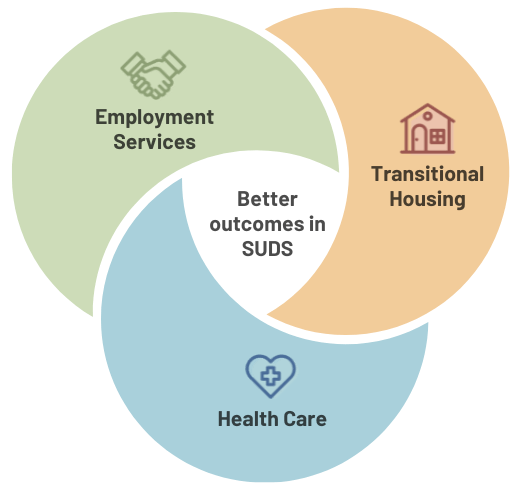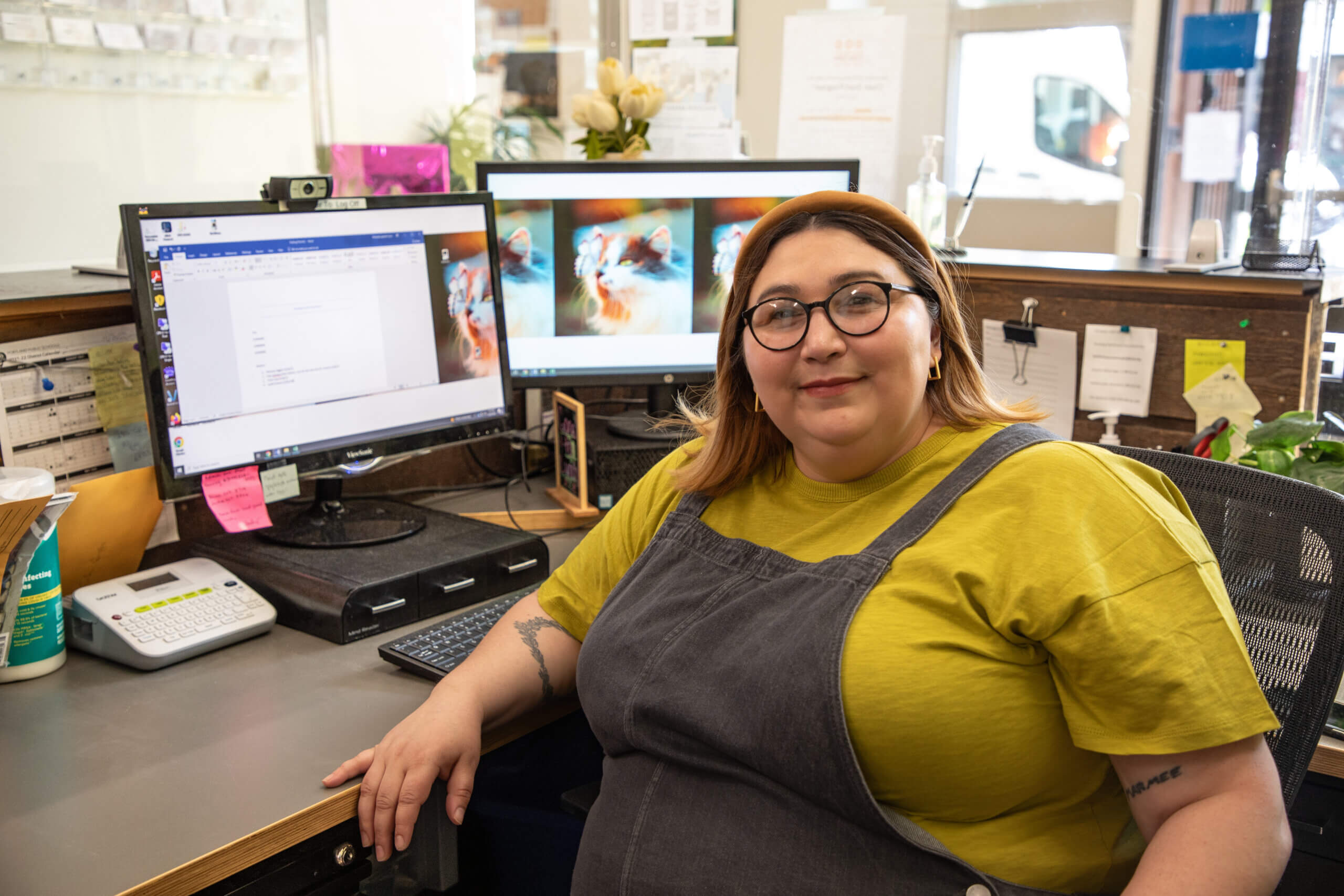back to all blog posts
Cats, Quinoa and Kindness: Amanda’s Story of Recovery
Wednesday, July 12, 2023Amanda is an optimistic young woman who believes “kindness is coolness” and loves making “power bowls” with quinoa, sweet potatoes and kale. She is excited about her new full-time job (“it’s a dream!”) and looking for an apartment where she’ll be able to have a cat—maybe two cats.
But it was just 16 months ago that Amanda was using meth every day, crashing on someone’s couch. “I literally thought I was in hell,” she said. “I thought I was dead already.”
Amanda believes that the combination of Central City Concern’s programs she was able to access saved her life, and CCC’s data shows she’s not alone. Our analytics team, part of CCC’s Office of Innovation and Integration, has found that program participants have better outcomes when certain services are combined. For example, someone who accesses employment services, transitional housing and other health services is almost five times more likely to have a good outcome in substance use disorder treatment than the average CCC program participant. In other words, having a job, a safe place to live and health care helps people stay sober.
Amanda has certainly found this to be true. After leaving inpatient treatment, she was accepted into CCC’s Recovery Mentor Program and moved into transitional housing while also receiving outpatient treatment at Old Town Recovery Center. Transitional housing with supportive services provided a safe environment where she built relationships with staff who truly cared and made lifelong friends.
 CCC program participants who access health care, employment and transitional housing are 4.8 times more likely to complete outpatient substance use disorder services (SUDS) without being admitted to a detox facility than the average CCC program participant.
CCC program participants who access health care, employment and transitional housing are 4.8 times more likely to complete outpatient substance use disorder services (SUDS) without being admitted to a detox facility than the average CCC program participant.
While in the Recovery Mentor Program, Amanda joined Community Volunteer Corps, or CVC, a CCC program where participants volunteer in the community while learning job skills. For Amanda, who referred to herself as “completely unemployable” before she found recovery, it was an opportunity to learn how to be a team player and most importantly, show up on time. It helped prepare her for the next steps—graduating from the Recovery Mentor Program, moving into Employment Recovery Housing (another type of transitional housing) and becoming an on-call employee with Central City Staffing. Central City Staffing is a social enterprise program that helps people who have experienced homelessness build their skills and resume.
In her new role, she honed her administrative skills. But it was more than just relearning how to write a professional email. Having a job gave her a sense of purpose. Recently, she was hired for a full-time, permanent position as a receptionist at the Employment Access Center.

“I love my job. I see myself in so many people who come in, and I can relate to their situation. It feels good to see people wanting to better themselves, because that’s what every person who walks in wants. They want to better their life, and I want to help them do something about it. It makes me feel so good.”
Having access to health care has also been life-changing for Amanda, who also has bipolar disorder and complex PTSD. “If I didn’t have health care, I wouldn’t be mentally stable enough to accomplish anything, or even get out of bed,” she said.
Amanda sees her biggest accomplishment as learning how to take good care of herself. “Going to my appointments, respecting my body, taking my meds on time, eating well, sleeping well…my self-care is the thing I’m most proud of.”
The combination of employment, housing and health care, along with outpatient treatment, has made all the difference for Amanda. “If you take one away, you’re compromising somewhere,” she said. “Then you’re putting people at a disadvantage for being able to achieve sobriety.”
What’s next for Amanda? Now that she can afford a bigger apartment, she’s excited to be able to spread out and have room to make art. She is, of course, thinking about cat names (maybe Pancakes or Oatmeal, but she’ll have to meet the cat first). And someday, she hopes to pursue a career in marketing and communications.
I’m incredibly fortunate, and I’m reminded of that every day.
Every year Central City Concern serves over 13,000 people, helping them find health, hope and stability. With your support, we can serve even more.